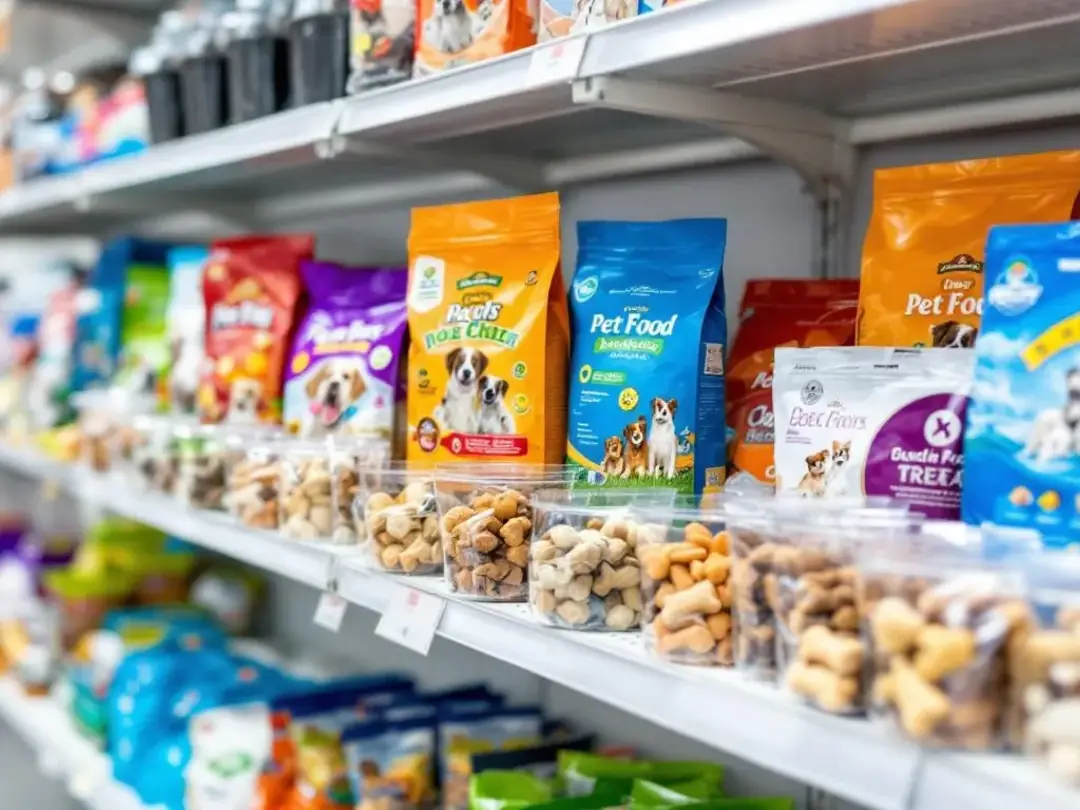Key Takeaways
-
Sweet potatoes are safe and nutritious for dogs when cooked plain and served in moderation
-
They provide essential vitamins A, B6, and C, plus dietary fiber that supports digestive health
-
Always cook sweet potatoes thoroughly and avoid adding seasonings, butter, or oil
-
Sweet potatoes should always be served cooked and as unseasoned sweet potatoes to ensure safety and digestibility for dogs
-
Limit sweet potato treats to no more than 10% of your dog's daily caloric intake
-
Introduce sweet potatoes gradually and monitor your dog for any allergic reactions or digestive upset
Nutritional Benefits of Sweet Potatoes for Dogs
Sweet potatoes deliver an impressive nutritional punch that makes them particularly valuable for canine nutrition. The dietary fiber content stands out as one of their most significant benefits. This fiber promotes healthy digestion and helps regulate bowel movements, making sweet potatoes especially useful for dogs with minor digestive issues.
The beta carotene content is where sweet potatoes really shine for maintaining healthy eyes and overall health. Dogs can efficiently convert this beta carotene into vitamin A, which supports your dog's vision, immune system function, and cellular growth. Sweet potatoes are especially beneficial for a dog's vision due to their high beta-carotene content, which helps support and improve overall eye health. This conversion ability makes sweet potatoes particularly valuable compared to other vegetables that don't offer the same bioavailable nutrients.
Vitamin C acts as a powerful antioxidant, helping combat free radicals while supporting a properly functioning immune system. The vitamin B6 content contributes to brain function and energy metabolism, while essential minerals like potassium support muscle and nerve function.
For weight-conscious pet owners, sweet potatoes offer excellent nutritional density without excessive calories. Their low fat content and nutritional profile make them a great choice for maintaining a healthy weight in dogs. Their low glycemic index helps prevent blood sugar spikes, making them suitable even for diabetic dogs when portion sizes are carefully managed.


Potential Risks and Side Effects
While sweet potatoes are generally safe, overfeeding can definitely cause problems. Too much can lead to digestive upset including diarrhea, vomiting, and uncomfortable bloating. Some dogs have sensitive stomachs that react poorly to sudden dietary changes, even with healthy foods. While most dog sweet potatoes are safe, some dogs may experience sensitivities or health risks, so always introduce new foods gradually and monitor your pet closely.
Raw sweet potatoes pose significant risks that every pet owner should understand. Uncooked sweet potatoes are extremely difficult to digest and can cause choking or serious intestinal blockage, especially in smaller dogs. The tough, fibrous texture becomes dangerous when your dog can't break it down properly.
Though rare, some dogs may develop allergic reactions to sweet potatoes. Signs of an allergic reaction can include skin irritation, itching, swelling, or gastrointestinal issues such as vomiting or diarrhea. If you notice any of these symptoms, discontinue feeding immediately and consult your veterinarian.
The natural sugar content, while lower than many treats, can still contribute to weight gain if you're not careful with portions. Dogs with diabetes need particularly careful monitoring when eating fiber-rich foods that contain natural sugars.
How Much Sweet Potato Can Dogs Eat
The golden rule for sweet potato treats is simple: they shouldn't exceed 10% of your dog's daily caloric intake. This keeps treats in their proper place while maintaining your dog's regular diet as the primary nutrition source. The amount of sweet potato a dog can eat depends on their size and health-smaller dogs should eat less, while larger or more active dogs can eat a bit more, always within the 10% guideline.
For small dogs, approximately one teaspoon of cooked sweet potato per day represents a reasonable starting point. Small dogs have proportionally smaller digestive systems and can experience upset more easily with larger portions.
Large dogs can typically handle one tablespoon to half a cup of cooked sweet potato daily, depending on their size and activity level. Active dogs burn more calories and may tolerate slightly larger portions, while sedentary dogs need smaller amounts to avoid weight gain.
Your dog's size, age, weight, and overall health status should guide portion decisions. Puppies need smaller amounts due to developing digestive systems, while senior dogs might benefit from softer, more digestible preparations. Always start with smaller amounts and gradually increase if your furry friend tolerates sweet potatoes well. Sweet potatoes should only suplement your dog's regular diet and are not a substitute for a complete and balanced dog food.


How to Safely Prepare Sweet Potatoes for Dogs
Proper preparation makes the difference between a healthy treat and a potential problem. Always cook sweet potatoes thoroughly using steaming, boiling, baking, or microwaving. The cooking process breaks down tough fibers and makes nutrients more bioavailable for your dog's digestive tract.
Wash and peel sweet potatoes completely before cooking. Sweet potato skin can be tough and difficult for dogs to digest, potentially causing choking hazards, especially for smaller dogs. Removing potato skins eliminates this risk entirely.
Cut cooked sweet potatoes into bite sized pieces appropriate for your dog's size, or mash them for easier consumption. This prevents choking and makes the sweet potato easier for your dog to enjoy safely.
Serve sweet potatoes completely plain-no butter, oil, salt, sugar, or seasonings of any kind. Unseasoned sweet potatoes are gentlest on your dog's stomach and reduce the risk of digestive upset. These additions can be harmful to dogs and eliminate the health benefits you're trying to provide. Allow cooked sweet potatoes to cool completely before serving to prevent mouth burns.
Safe Cooking Methods
Sweet potatoes should always be served cooked to ensure they are safe and easy for dogs to digest.
Steaming preserves the most nutrients while creating the ideal soft consistency lessons for easy digestion. Steam sweet potatoes for 20-25 minutes until completely tender throughout.
Boiling offers simple preparation, though some water-soluble vitamins may leach into the cooking water. Boil for 15-20 minutes until easily pierced with a fork.
Baking at 400°F for 45-60 minutes develops natural sweetness while maintaining nutritional integrity. Pierce the skin several times before baking to prevent bursting.
Microwaving provides quick preparation for smaller portions. Cook for 5-8 minutes, checking frequently and turning once halfway through cooking time.
What to Avoid
Never feed raw sweet potatoes due to digestion difficulties and choking risks. The tough, fibrous texture of uncooked sweet potatoes can cause serious intestinal problems.
Avoid sweet potato skins entirely-they're tough, hard to digest, and pose unnecessary choking risks for dogs of all sizes.
Skip anything resembling dog sweet potato fries or human sweet potato fries. These are typically cooked in oil with harmful seasonings that can upset your dog's stomach or worse.
Never give sweet potato pie, casseroles, or dishes containing sugar, spices, marshmallows, or other human food additives. These ingredients can be toxic to dogs.
Avoid canned sweet potatoes that contain added syrup, sugar, or artificial ingredients. Stick to fresh sweet potatoes you prepare yourself to control exactly what goes into your dog's treat. Only cooked, unseasoned sweet potatoes are safe for dogs-never add salt, butter, or spices.


Special Considerations for Different Dogs
Puppies eat sweet potatoes differently than adult dogs due to their developing digestive systems. Introduce very small amounts slowly and watch carefully for any signs of digestive upset. Growing puppies need consistent nutrition from their regular puppy food more than they need treats.
Senior dogs often benefit from mashed sweet potatoes that require less chewing effort. Their aging digestive systems may process softer textures more comfortably while still gaining nutritional benefits.
Diabetic dogs require extra caution with portion sizes due to the natural sugar content in sweet potatoes. While the low glycemic index helps prevent dramatic blood sugar spikes, careful monitoring remains essential.
Dogs carrying extra weight should receive smaller portions to avoid contributing additional calories to their daily intake. The fiber content can help with satiety, but moderation prevents counterproductive weight gain.
When adding sweet potatoes to your dog's diet, always monitor your dog's health to ensure they are responding well and to catch any potential issues early.
How to Introduce Sweet Potatoes to Your Dog's Diet
Start by consulting your veterinarian before adding sweet potatoes to dogs or making any significant changes to your furry friend's diet. Sweet potatoes can be a nutritious addition to your furry friend's diet when introduced properly, offering health benefits as part of a balanced meal. Professional guidance helps ensure sweet potatoes fit appropriately with your dog's specific health needs.
Begin with a very small amount mixed into your dog's regular food to test tolerance. This gradual introduction helps identify any sensitivities before they become serious problems.
Monitor your dog closely for 24-48 hours after the first feeding. Watch for changes in appetite, energy level, stool quality, or behavior that might indicate digestive issues or allergic reactions.
Keep a simple food diary tracking when you serve sweet potatoes and how your dog responds. This record helps identify patterns and provides valuable information for your veterinarian if problems arise.
Gradually increase portion size over 1-2 weeks if your dog tolerates sweet potatoes well. This slow progression allows their digestive system to adapt while minimizing the risk of adverse reactions.


Sweet Potatoes in Commercial Dog Food
Many premium pet foods now include sweet potatoes as a wholesome carbohydrate source that provides sustained energy without common allergens. Many commercial dog foods and treats feature sweet potatoes, and dogs eat sweet potatoes safely when these are prepared unseasoned and portioned appropriately. These formulations often target dogs with food sensitivities or owners seeking grain-free alternatives. As you can now answer the question. Are sweet potatoes good for dogs?
Certain pet foods featuring sweet potatoes have gained popularity among dogs with suspected food allergies. The novel protein and carbohydrate combinations can help identify trigger ingredients while providing complete nutrition.
Commercial dog foods using sweet potatoes often market themselves as more natural or ancestral diets. While marketing claims vary, sweet potatoes do provide legitimate nutritional benefits when properly incorporated into balanced formulations.
Sweet potato dog treats are widely available and generally safe when they contain minimal ingredients. Look for products listing sweet potato as the primary ingredient without excessive fillers, artificial colors, or preservatives.
When selecting commercial products, check labels carefully to ensure no harmful additives or excessive sugar content that could counteract the health benefits of sweet potatoes for dogs.
Alternatives to Sweet Potatoes for Dogs
If you're looking for other nutritious options besides sweet potatoes for dogs, there are several healthy alternatives that can offer similar dietary fiber and nutritional benefits. Green beans are a fantastic choice-they're low in calories, packed with vitamins and minerals, and can easily be added to your dog's meals for a crunchy, satisfying treat. Canned pumpkin is another excellent option, especially for supporting healthy digestion and helping to prevent digestive upset. Just be sure to choose plain canned pumpkin without added sugars or spices. Carrots are also a popular snack for dogs, providing a boost of vitamin A and fiber while being gentle on most dogs' stomachs.
When introducing any new food, including these alternatives to sweet potatoes, it's important to start with small amounts and watch for any signs of adverse reactions, especially if your dog has a sensitive stomach. Gradually increasing the portion allows your dog's digestive system to adjust and helps you spot any issues early. As always, consult your veterinarian before making significant changes to your dog's diet to ensure these new foods are a good fit for your furry friend's specific needs.
Monitoring Your Dog's Diet After Adding Sweet Potatoes
Once you start feeding sweet potatoes to your dog, it's important to keep a close eye on how they respond. Watch for any signs of digestive upset, such as diarrhea, vomiting, or bloating, which could mean your dog isn't tolerating sweet potatoes well. Allergic reactions, like itching, redness, or skin irritations, can also occur in some dogs. If you notice any of these symptoms, stop feeding sweet potatoes and reach out to your veterinarian for guidance.
It's also essential to make sure sweet potatoes don't make up more than 10% of your dog's daily caloric intake. Overfeeding can lead to unwanted weight gain and may impact your dog's overall health. Regularly check your dog's weight and energy levels, and adjust their diet as needed to maintain a healthy balance. Every dog is unique, so monitoring their individual response to feeding sweet potatoes will help you provide the best care and nutrition for your furry friend.
FAQ
Can dogs eat sweet potato skin?
Sweet potato skin is not toxic but can be difficult for dogs to digest and may cause choking, especially in smaller dogs. It's best to always peel sweet potatoes before cooking and serving them to your dog to reduce the risk of digestive discomfort or intestinal blockage.
Are sweet potatoes better than regular potatoes for dogs?
Sweet potatoes are generally considered safer and more nutritious than regular potatoes for dogs. Unlike regular potatoes, sweet potatoes don't contain solanine when raw, have a lower glycemic index, and provide more vitamins A and C. However, both should be cooked plain and served in moderation.
Can sweet potatoes help with my dog's diarrhea?
Sweet potatoes can help firm up loose stools due to their high fiber content, but they should be introduced gradually. For dogs with diarrhea, start with very small amounts of plain, cooked sweet potato mixed with their regular food. Always consult your veterinarian for persistent digestive issues.
How long should I cook sweet potatoes for my dog?
Cook sweet potatoes until they're completely tender throughout. Baking typically takes 45-60 minutes at 400°F, boiling takes 15-20 minutes, and steaming takes 20-25 minutes. The sweet potato should be soft enough to easily mash with a fork before serving to your dog.
Can I give my dog sweet potato every day?
While sweet potatoes are safe for daily consumption in small amounts, it's better to offer them as an occasional treat rather than daily. Too much can lead to digestive upset or nutritional imbalance. Rotate sweet potatoes with other healthy treats to provide variety in your dog's diet.
Conclusion
Sweet potatoes can be a wonderful addition to your dog's diet when prepared and served correctly. Packed with dietary fiber, vitamins, and minerals, sweet potatoes offer a range of health benefits, from supporting healthy digestion to boosting immune function and vision. The key to safely feeding sweet potatoes is moderation-introduce them gradually, cook them thoroughly, and avoid any added seasonings or oils that could be harmful to your dog.
By following these guidelines and consulting with your veterinarian, you can help your furry friend enjoy the many benefits of sweet potatoes while ensuring their overall health and well-being. Remember, every dog is different, so always tailor your approach to your dog's individual needs and monitor their response to new human foods. With a little care and attention, sweet potatoes can be a delicious, nutritious treat that supports your dog's healthy digestion and adds variety to their balanced diet.






